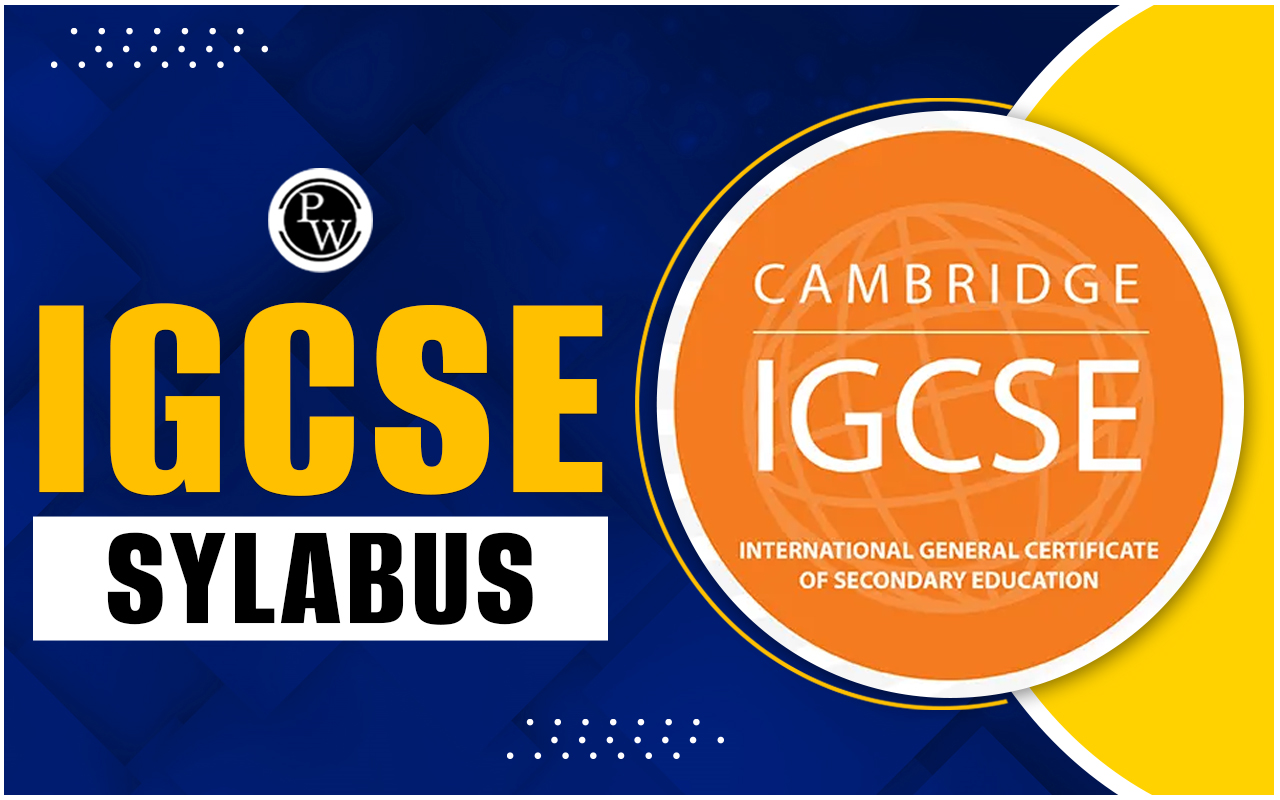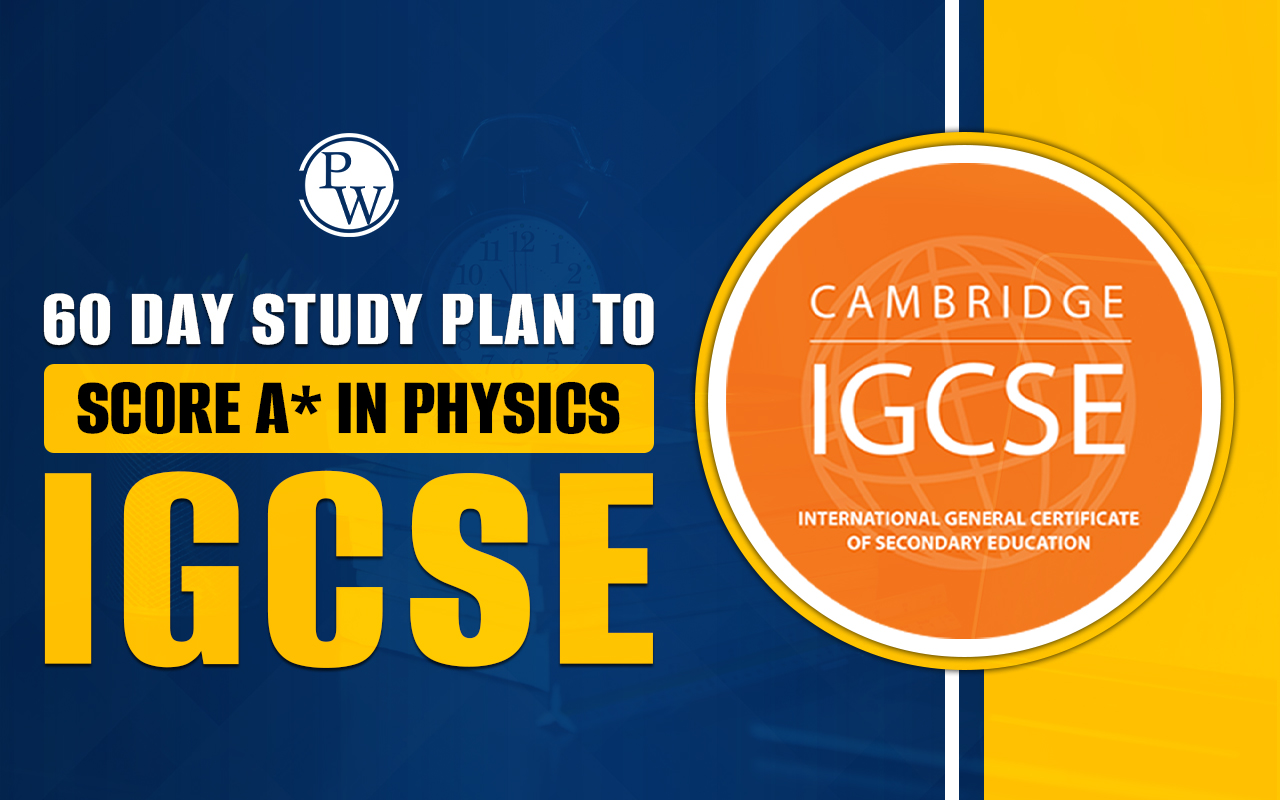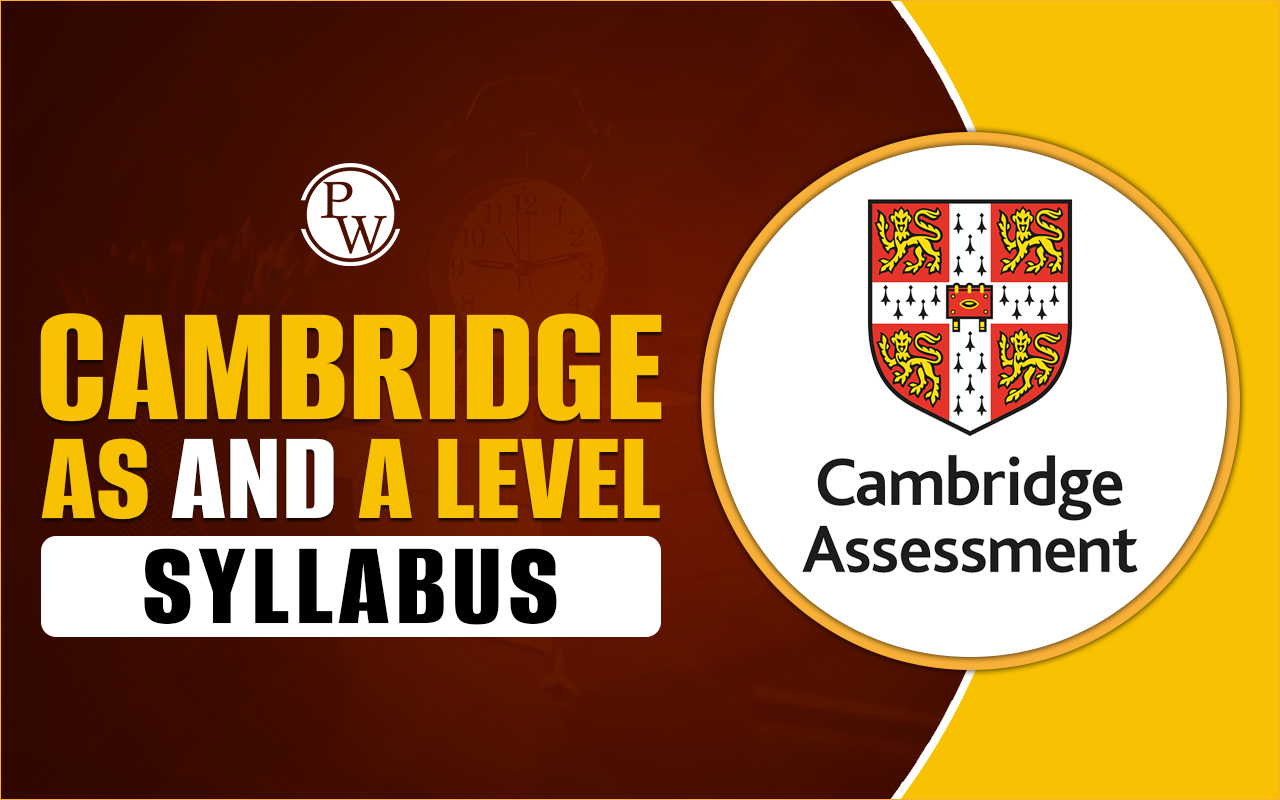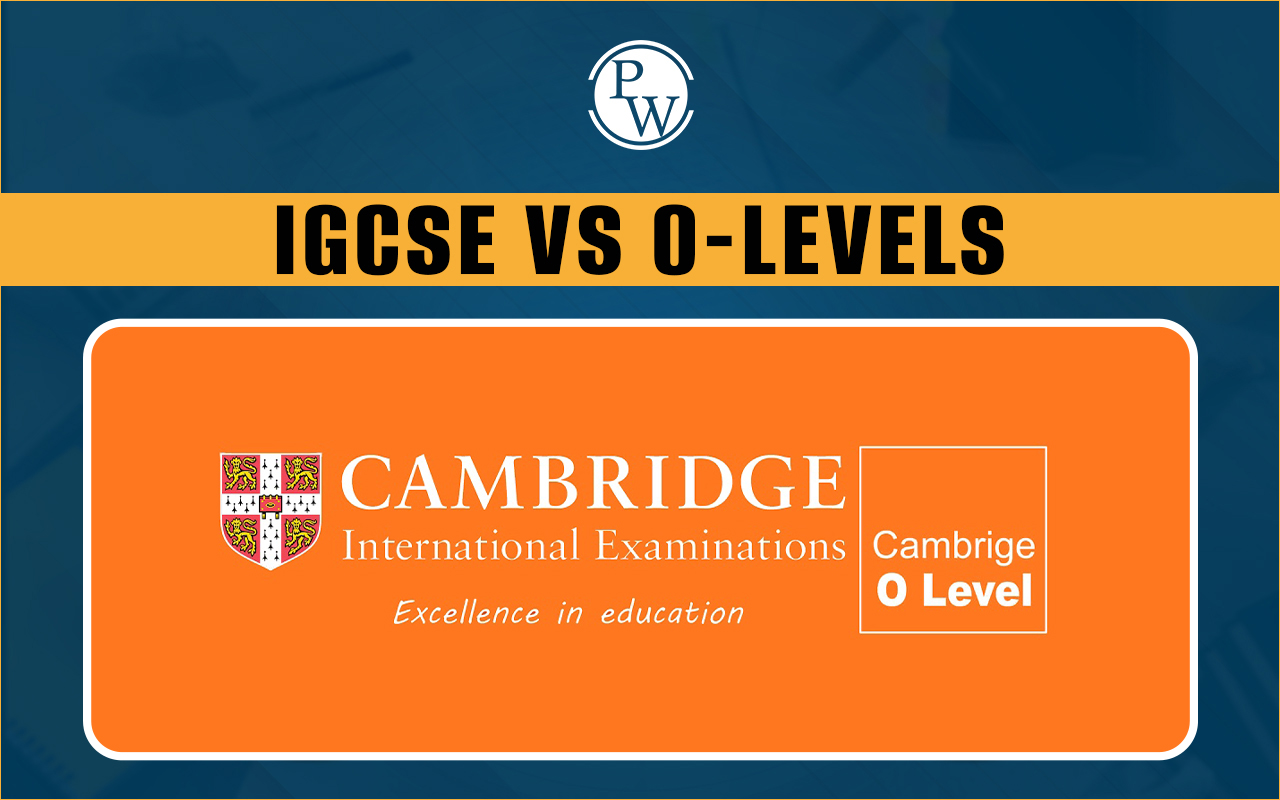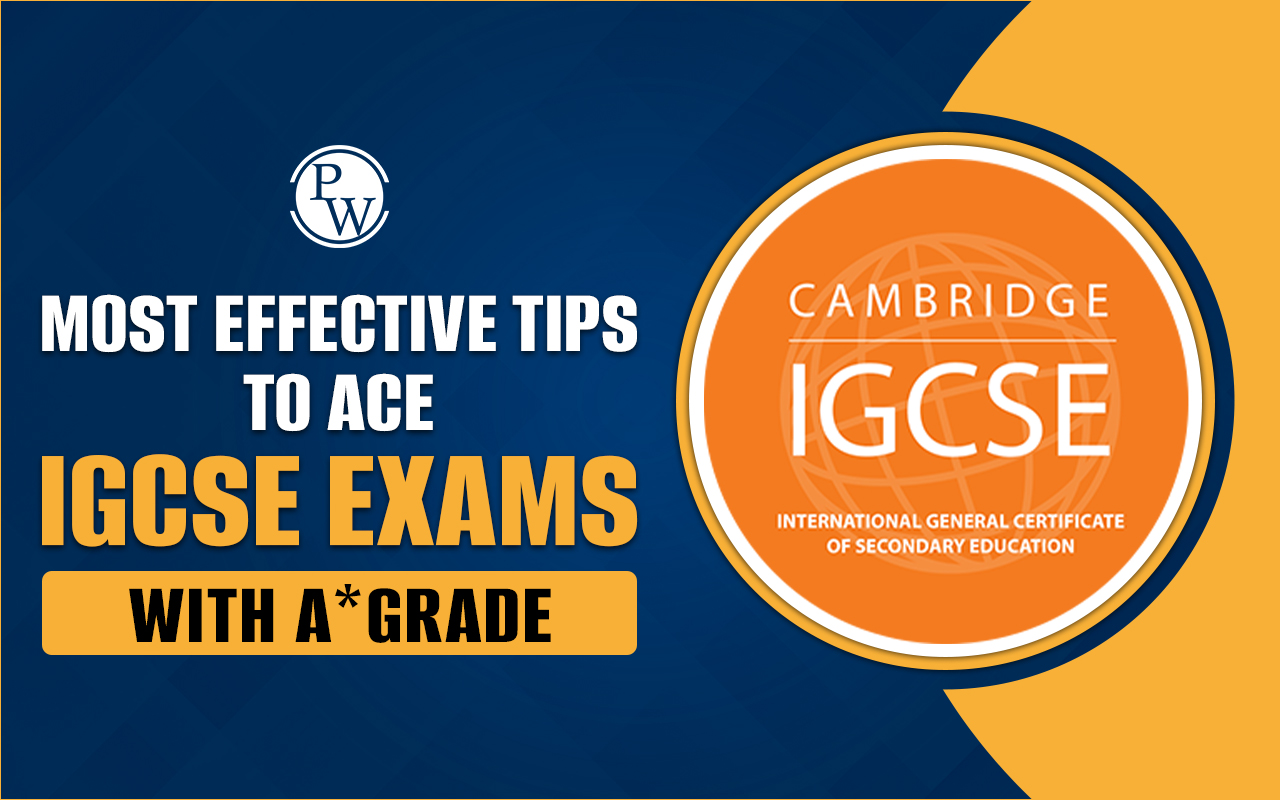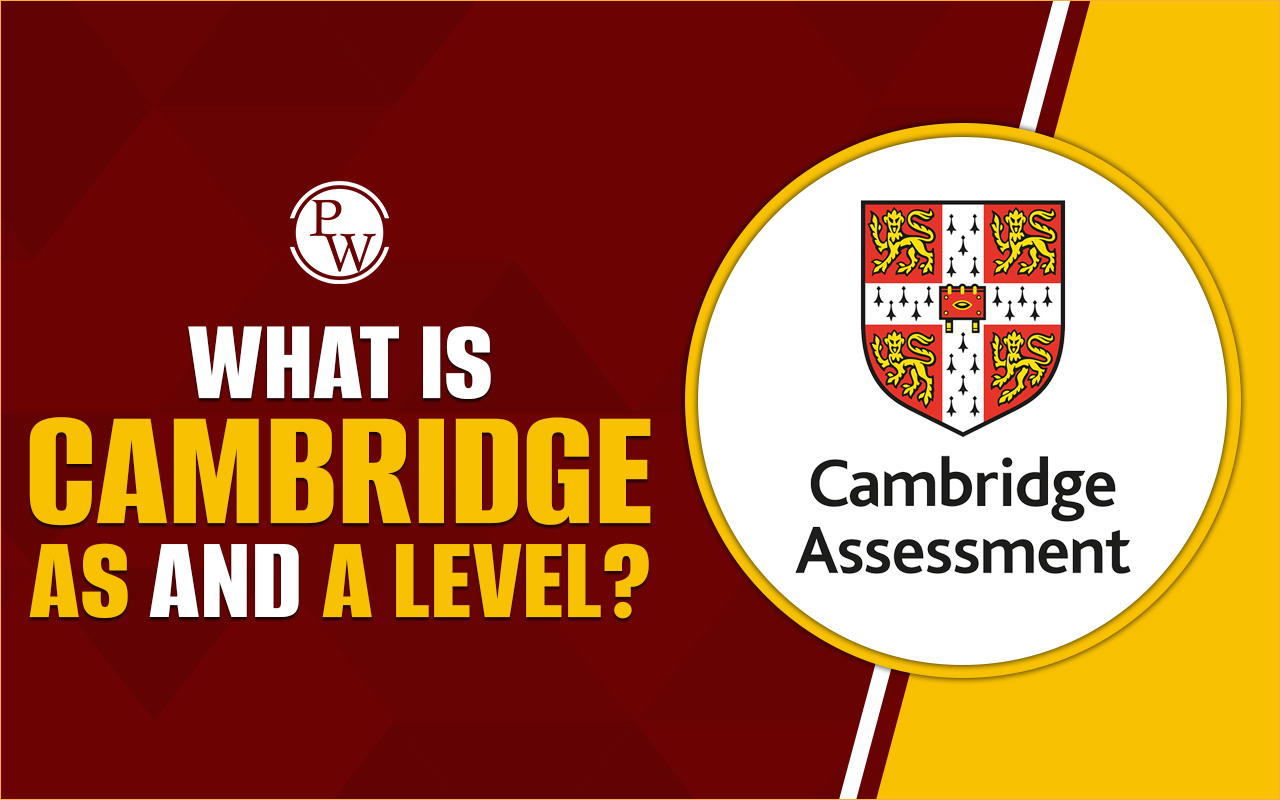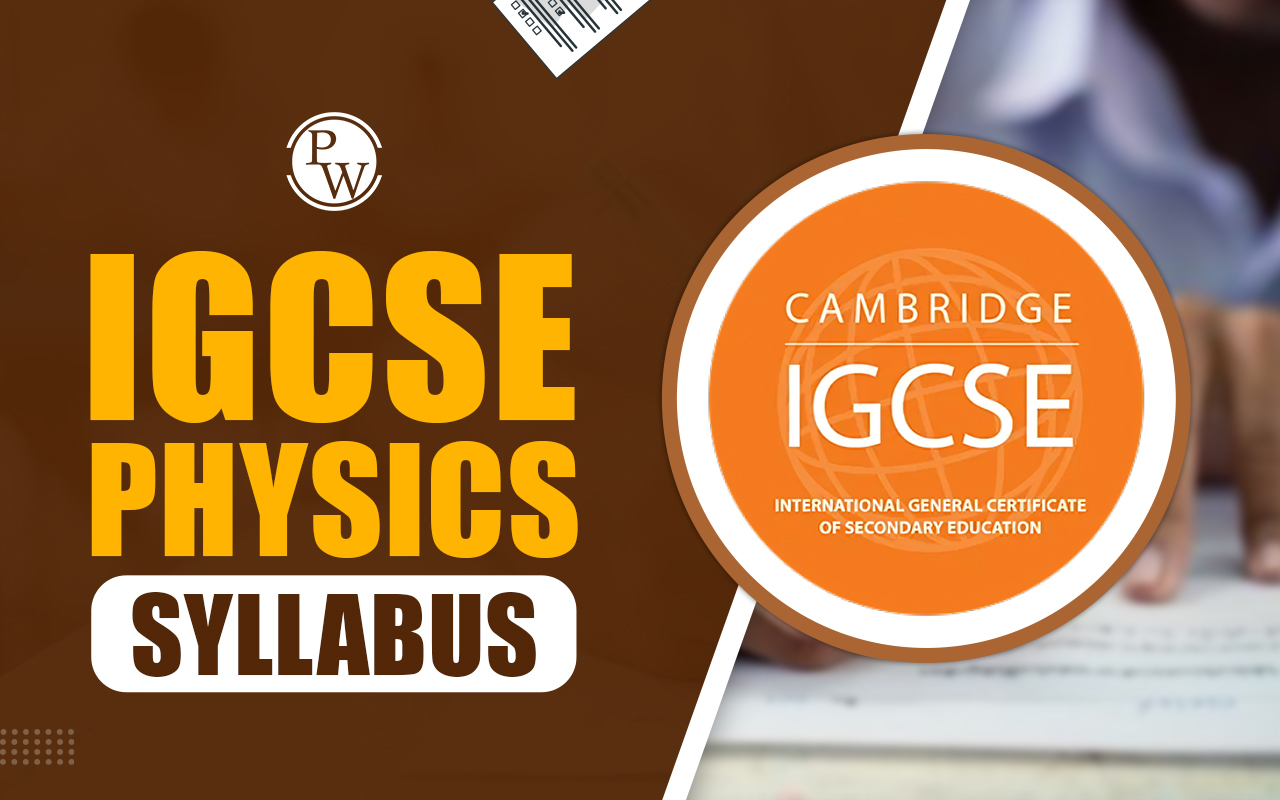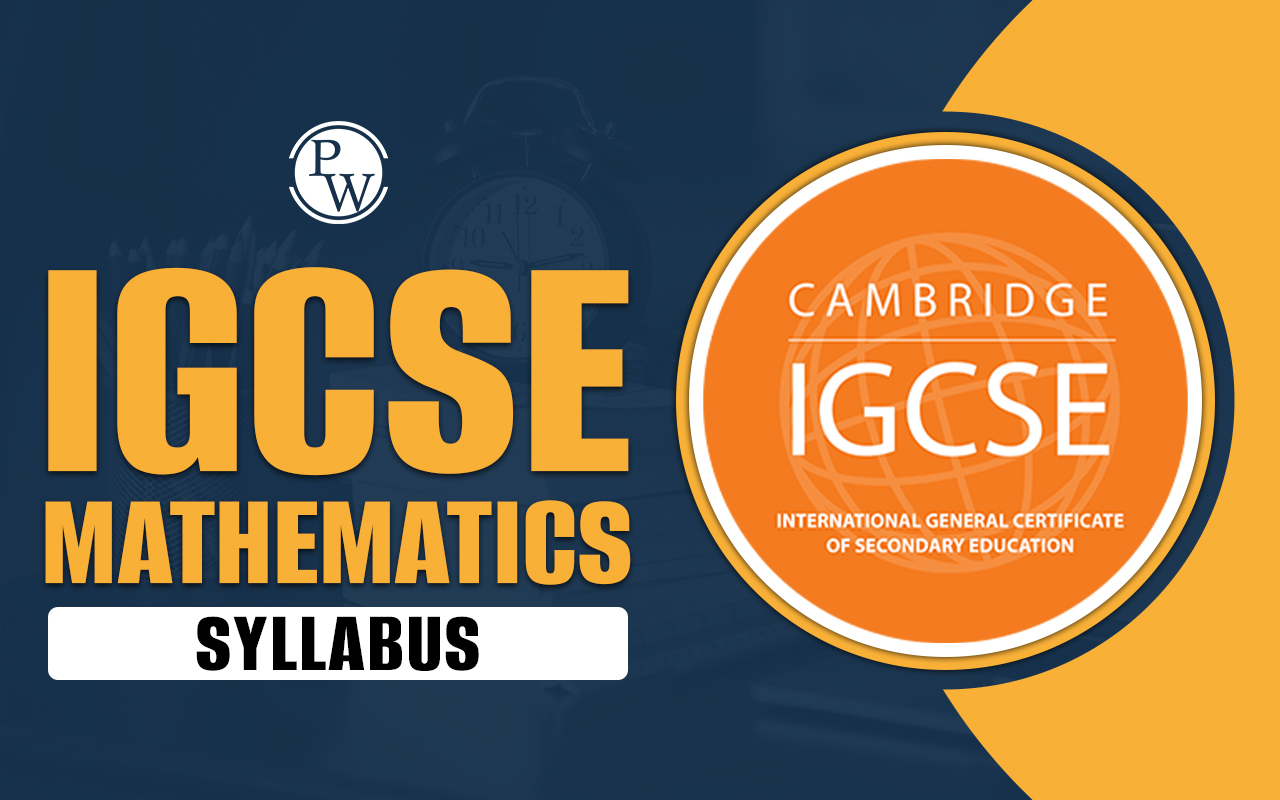
IGCSE Curriculum : If you are a parent of a grade 9th or 10th child seeking the best education options that meet international standards, then this article is for you. As you already know from the heading, this article is about the IGCSE curriculum, which can sometimes seem complex but it is not in reality. In this article, we aim to simplify everything about the IGCSE Curriculum and bust misconceptions about this curriculum, but before going ahead, let's understand first “What is IGCSE”
What is IGCSE?
The International General Certificate of Secondary Education (IGCSE) is a subject-based qualification typically designed for students aged 14-16. Taken by millions of students around the world, it highlights its global popularity and credibility. The IGCSE is a two-year program that begins in Class 9 and concludes with the final examination at the end of Class 10. IGCSE It is based on the principles of a British curriculum and is offered by various boards like Cambridge Assessment International Education, Pearson Edexcel, and Oxford AQA.Fact : The above paragraph clarifies a common misconception that IGCSE is a board whereas the truth is that it’s a curriculum that provides an educational framework, and different boards offer their own version of IGCSE.
Origin of IGCSE
The IGCSE was developed by the University of Cambridge International Examinations (CIE), part of the Cambridge Assessment Group, a department of the University of Cambridge.Purpose and Goals of IGCSE
The aim was to create a qualification that catered to an international audience, providing a standardized curriculum and assessment method applicable across different countries and educational systems. It sought to prepare students for further education, such as A Levels, International Baccalaureate Diploma Programme (IBDP), and other qualifications for students of age 16+.Cambridge IGCSE Curriculum
In this blog, we will take Cambridge IGCSE as an example to understand the IGCSE curriculum. Each year, over a quarter of a million students take Cambridge IGCSE exams in more than 150 countries and nearly 6000 schools worldwide, highlighting its extensive global reach.Cambridge Pathway
Cambridge IGCSE is part of the Cambridge Pathway, designed for students aged 3 to 19. The five stages of the Cambridge Pathway lead seamlessly from primary to secondary and pre-university years. These stages are:- Cambridge Early Years (for age 3+)
- Cambridge Primary (for age 5+)
- Cambridge Lower Secondary (for age 11+)
- Cambridge Upper Secondary or (IGCSE) (for age 14+)
- Cambridge Advanced (for age 16+)
|
Cambridge Pathway |
|
|---|---|
| S. No | Some Facts & Numbers |
| 1 | Cambridge Primary is taught in more than 2500 schools in over 120 countries. |
| 2 | Cambridge Lower Secondary is taught in more than 4000 schools in nearly 140 countries. |
| 3 | Cambridge IGCSE is taught in more than 6000 schools in nearly 150 countries. |
| 4 | Cambridge International AS & A Levels are taught in over 130 countries. |
- Subject Selection & Flexibility The Cambridge IGCSE curriculum offers unparalleled academic flexibility. With over 70 subjects including 30 languages to choose from students can tailor their education to match their interests and career aspirations. Cambridge IGCSE specifically consists of Six subject groups , and their related subjects are:
|
Cambridge IGCSE Curriculum |
|
|---|---|
| Group | Subject |
| English Language & Literature |
|
| Humanities & Social Sciences |
|
| Mathematics |
|
| Languages |
|
| Creative and Vocational |
|
| Sciences |
|
Fact: The number of subjects a student should select depends on the school and student, usually schools advise students to select 7-9 subjects out of which usually English language, English Literature, Mathematics, Any two from the Sciences group, Any two Humanities group and one from a creative group is the combination.
Difference Between IGCSE Core & Extended
The Cambridge IGCSE curriculum accommodates varying student abilities by offering Core and Extended papers in several subjects. This flexibility allows educators to select the level that best suits the capabilities of their students. The Core curriculum provides a broad overview of the subject, suitable for most students, ensuring they acquire the essential foundational knowledge and is targeted at students expected to achieve grades C to G. In contrast, the Extended curriculum encompasses all the Core content plus additional material, designed for more academically inclined students, preparing them for advanced education or professional courses. It is targeted at those expected to achieve grades A* to E.| Difference Between IGCSE Core & Extended | ||
|---|---|---|
| Aspect | IGCSE Core | IGCSE Extended |
| Curriculum | Essential knowledge | Deeper concepts, additional topics |
| Grading | C-G (C - pass) | A*-E (wider range) |
| Assessment content | Fundamental concepts and skills | More complex, advanced topics covered |
Academic Difficulty Level of IGCSE
As compared to other boards offering different curriculum, Cambridge IGCSE is academically more difficult and prepares students in the areas of critical thinking and builds a solid foundation in different areas such as mathematics, sciences, and humanities and helps students to identify the areas of their core interest.IGCSE Exam Pattern and Assessment
- Cambridge IGCSE assessment takes place at the end of the course and can include written oral, coursework, and practical assessment.
- Cambridge IGCSE examination sessions occur twice a year, in June and November. Whereas there’s an exclusive series for India in March. Results are issued in August and January.
- In the first year of Cambridge IGCSE exams are conducted by schools internally and at the end of two years Cambridge conducts an exam in which the entire IGCSE syllabus is assessed.
- The IGCSE uses a variety of assessment methods, including written examinations, oral tests, coursework, and practical assessments. This comprehensive approach ensures a well-rounded evaluation of student abilities.
Benefits of the IGCSE Assessment Approach
Comprehensive Evaluation - The IGCSE assessment approach employs varied methods, providing a holistic view of a student's abilities. This comprehensive evaluation encompasses knowledge, practical skills, and critical thinking, ensuring a well-rounded assessment of each student's capabilities. Fairness and Flexibility - The IGCSE offers core and extended options, catering to different student abilities. This ensures that all students are assessed appropriately, reflecting their individual strengths and areas for improvement. The flexibility of the curriculum allows students to choose the level that best suits their learning style and academic goals. Preparation for Future Studies - The rigorous assessment methods of the IGCSE curriculum prepare students for higher education and professional environments. The skills developed through the IGCSE, such as analytical thinking, problem-solving, and effective communication, are highly valued in universities and the workplace. This preparation helps students transition smoothly into advanced studies and career paths.Cambridge IGCSE Grading System
For almost 30 years, UK GCSEs and Cambridge IGCSEs have been reported on an A*–G grading scale, which offers a good level of differentiation between students’ performance. This grading scale is well understood and accepted by universities and employers around the world, ensuring its credibility and reliability in assessing student achievements.| Traditional A*-G Grading Scale | ||
|---|---|---|
| Grade | Percentage Range | Description |
| A* | 90-100% | Exceptional performance |
| A | 80-89% | Excellent performance |
| B | 70-79% | Good performance |
| C | 60-69% | Satisfactory performance |
| D | 50-59% | Fair performance |
| E | 40-49% | Sufficient performance |
| F | 30-39% | Poor performance |
| G | 20-29% | Very poor performance |
| U | 0-19% | Ungraded (minimum standards not met) |
IGCSE Result
The IGCSE (International General Certificate of Secondary Education) is a globally recognized qualification for school students, typically aged 14 to 16 years. It is offered by various examination boards, including Cambridge Assessment International Education and Pearson Edexcel. The IGCSE Result is released three times a year, coinciding with the different exam series held throughout the year.IGCSE Recognition and Acceptance
The IGCSE (International General Certificate of Secondary Education) is highly recognized and accepted globally, serving as a valuable credential for students seeking further education or career opportunities internationally. It is equivalent to other secondary school qualifications such as the UK’s GCSE, the American High School Diploma, and the Indian CBSE or ICSE. Many universities, including prestigious institutions like the University of Oxford and the University of Cambridge, accept IGCSE results for admission to undergraduate programs. Additionally, employers and educational institutions worldwide acknowledge the IGCSE, further enhancing its value and recognition.Cambridge IGCSE Subject Selection Process
Choosing the right Cambridge IGCSE subjects is crucial for aligning your studies with your interests, higher education plans, and career goals. Here are some key considerations and insights to guide your subject selection:- Align with Interests and Goals - Choose subjects based on your interests and future aspirations. For instance, if you plan to pursue engineering, select subjects that provide relevant knowledge and preparation, like Physics and Advanced Mathematics. Similarly, if you aim to study medicine, opt for Biology along with other Science subjects.
- Quality Over Quantity - Top-ranking universities prioritize top grades and overall performance rather than the number of subjects taken. Focus on excelling in the subjects you choose.
- General Guidance for Uncertain Students - If you're unsure about your future career, select subjects that genuinely interest you. This will help keep you motivated and engaged.
- Subject-Specific Insights:
Cambridge IGCSE Board Vs. Indian Education Boards
Cambridge IGCSE Board emphasizes critical thinking and problem-solving skills, offering a flexible curriculum with diverse subjects tailored to student interests. In contrast, Indian education boards like CBSE , ICSE, and State Boards focus more on rote learning, with less curriculum flexibility and adaptability to individual student needs. Let's see the difference between Cambridge IGCSE and Indian Education Boards based on various parameters:| IGCSE vs ICSE/CBSE/State Boards | ||
|---|---|---|
| Aspect | IGCSE | ICSE/CBSE/State Boards |
| Teaching Methodology | Focuses on critical thinking and problem-solving skills | Emphasizes rote learning and memorization |
| Curriculum Flexibility | Offers a wide range of subjects, allowing students to tailor their education to their interests and aspirations | A more rigid curriculum with fewer elective options |
| Assessment Methods | Diverse methods including coursework, exams, and practical evaluations | Primarily written exams with some practicals in science subjects |
| Global Recognition | Recognized globally, facilitating international education and career opportunities | Primarily recognized in India, with limited international recognition |
| Popularity in India | Growing, with over 650 schools offering the curriculum | Long-established, with widespread adoption across Indian schools |
| Cost | Generally higher, reflecting the international standards and resources | Relatively lower, with more affordable fee structures |
| Language of Instruction | Predominantly English, with some subjects available in other languages | English, with second language options like Hindi or regional languages |
| Focus Areas | Broad focus on holistic development, critical thinking, and application of knowledge | Strong emphasis on theoretical knowledge and thorough understanding of subjects |
Top Cambridge IGCSE Curriculum Schools in India
IGCSE is a popular international school certificate that is also offered in India. In India more than 300 schools are there that offer the Cambridge IGCSE curriculum and universities and employers around the world recognize the qualification. Here is the list of top Top IGCSE Schools in India:| Top IGCSE Schools in India | |
|---|---|
| Name of School | Location |
| Top IGCSE Schools in Mumbai | |
| Dhirubhai Ambani International School | Mumbai |
| British School | Mumbai |
| Bombay International School | Mumbai |
| Ryan International School | Mumbai |
| Aditya Birla World Academy | Tardeo, Mumbai |
| Top IGCSE Schools in Delhi | |
| Heritage School | Delhi |
| Shri Ram School | Delhi |
| Apeejay International School | Sheikh Sarai |
| D.A.V Public School | Pitampura |
| DPS International | Saket |
| Maharaja Agarsain Public School | Ashok Vihar |
| Richmondd Global School | Mianwali Nagar |
| The Ardee School | New Friends Colony |
| The British School | Chanakyapuri |
| Top IGCSE Schools in Gurgaon | |
| Pathways International School | Gurgaon |
| Alpine Convent School | Gurugram |
| Amity Global School | Gurugram |
| G.D Goenka World School | Gurugram |
| Excelsior American School | Gurugram |
| The Scottish International High School | Gurugram |
| The Shri Ram School | Gurugram |
| Top IGCSE Schools in Chennai | |
| Anand Singapore International School | Porur |
| American International School | Taramani |
| Gateway International School | Sholinganallur |
| The Indian Public School | Perungudi |
| Lalaji Memorial Omega International School | Pallavaram |
| Anand Singapore International School | Chennai |
| American International School | Chennai |
| Top IGCSE Schools in Haryana | |
| Alpine Convent School | Gurugram |
| Amity Global School | Gurugram |
| Aravali International School | Faridabad |
| G.D Goenka Global School | Hisar |
| G.D Goenka World School | Gurugram |
| Excelsior American School | Gurugram |
| The Scottish International High School | Gurugram |
| The Shri Ram School | Gurugram |
| Top IGCSE Schools in Maharashtra | |
| Aditya Birla World Academy | Tardeo, Mumbai |
| Bombay International School | Marine Lines, Mumbai |
| Dhirubhai Ambani International School | Matunga, Mumbai |
| Top IGCSE Schools in West Bengal | |
| The Heritage School | Anandapura, Kolkata |
| Calcutta International School | Anandapura, Kolkata |
| Garden High International School | Kasba, Kolkata |
| Bridge International School | Hazra Road, Kolkata |
| The Cambridge School | Sarani, Kolkata |
| Top IGCSE Schools in Tamil Nadu | |
| The Lord International School | Kiskintha, Chennai |
| HLC International School | Karanai, Chennai |
| APL Global School | Okkiyam, Chennai |
| Top IGCSE Schools in Karnataka | |
| Candor International School | Domulur, Bangalore |
| Ebenezer International School | Huskur, Bangalore |
| Top IGCSE Schools in Uttar Pradesh | |
| Amity Global School | Noida |
How can PW International Boards help students ace their IGCSE exam?
PW International Boards is one one-stop solution for all educational needs for Cambridge IGCSE students as we provide free past-year paper solutions, concept lectures, notes and many more things on our YouTube channel.IGCSE Curriculum FAQs
Q 1. Which examination boards offer the IGCSE?
Ans. The IGCSE is offered by several examination boards, including Cambridge Assessment International Education, Pearson Edexcel and many more.
Q 2. How is the IGCSE curriculum structured?
Ans. The IGCSE curriculum is designed to be flexible, allowing schools to offer a combination of subjects that best suit their students' needs. Students typically study a mix of core and extended subjects, with an emphasis on developing critical thinking, problem-solving, and practical skills.
Q 3. How are IGCSE exams assessed?
Ans. IGCSE exams are assessed through a combination of written, oral, coursework, and practical assessments. The grading system typically ranges from A* to G, with A* being the highest grade.
Q 4. What are the benefits of the IGCSE curriculum?
Ans. The IGCSE curriculum is designed to be internationally relevant and academically rigorous, providing students with a solid foundation for further education. It is recognized by universities and employers worldwide, offering students numerous opportunities for academic and career advancement.
Q 5. How does the IGCSE prepare students for further education?
Ans. The IGCSE curriculum prepares students for further education by developing essential skills such as critical thinking, research, and independent learning. It provides a strong foundation for advanced studies, such as the International Baccalaureate (IB), A-levels, and other equivalent qualifications.
Q 6. When is the Cambridge IGCSE Exam held?
Ans, Cambridge IGCSE Exam Date 2024 is announced every year by the University of Cambridge Assessment International Education (CAIE). CAIE conducts its Cambridge IGCSE in February, May, and October and releases its results in May, August, and January respectively.
🔥 Trending Blogs
Talk to a counsellorHave doubts? Our support team will be happy to assist you!

Check out these Related Articles
Free Learning Resources
PW Books
Notes (Class 10-12)
PW Study Materials
Notes (Class 6-9)
Ncert Solutions
Govt Exams
Class 6th to 12th Online Courses
Govt Job Exams Courses
UPSC Coaching
Defence Exam Coaching
Gate Exam Coaching
Other Exams
Know about Physics Wallah
Physics Wallah is an Indian edtech platform that provides accessible & comprehensive learning experiences to students from Class 6th to postgraduate level. We also provide extensive NCERT solutions, sample paper, NEET, JEE Mains, BITSAT previous year papers & more such resources to students. Physics Wallah also caters to over 3.5 million registered students and over 78 lakh+ Youtube subscribers with 4.8 rating on its app.
We Stand Out because
We provide students with intensive courses with India’s qualified & experienced faculties & mentors. PW strives to make the learning experience comprehensive and accessible for students of all sections of society. We believe in empowering every single student who couldn't dream of a good career in engineering and medical field earlier.
Our Key Focus Areas
Physics Wallah's main focus is to make the learning experience as economical as possible for all students. With our affordable courses like Lakshya, Udaan and Arjuna and many others, we have been able to provide a platform for lakhs of aspirants. From providing Chemistry, Maths, Physics formula to giving e-books of eminent authors like RD Sharma, RS Aggarwal and Lakhmir Singh, PW focuses on every single student's need for preparation.
What Makes Us Different
Physics Wallah strives to develop a comprehensive pedagogical structure for students, where they get a state-of-the-art learning experience with study material and resources. Apart from catering students preparing for JEE Mains and NEET, PW also provides study material for each state board like Uttar Pradesh, Bihar, and others
Copyright © 2026 Physicswallah Limited All rights reserved.

